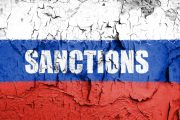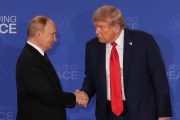
With French President Emmanuel Macron expressing disenchantment over delays with the rollout of a coronavirus vaccine, blaming it on regulations imposed by the European Union, and admitting that if a referendum were held now, the French would vote to leave the European super-state, the possibility of the implosion of the EU becomes more and more a possibility.
Macron’s chief rival, Marine Le Pen of the National Rally Party (formerly National Front Party), supports a national referendum on the question France’s EU membership, so Macron is making noises that France needs to be less dependent on the European Union.
Le Pen has made no secret of her desire to see France follow Great Britain in leaving the EU. The United Kingdom held a national referendum for a British exit (Brexit) from the EU in 2016, and Le Pen has called herself “Madame Brexit.” The U.K.’s referendum resulted in a vote of 52-48 to leave.
There is also rising disenchantment with the EU in Germany and the Netherlands, as well as in many other member states of the EU.
Political scientists cite four characteristics that determine whether a political entity is a true nation-state — population, territory, government, and sovereignty. For example, Puerto Rico has the first three, but not the last, so it is not considered a nation-state. Likewise for Greenland, which is part of Denmark. As for the historic nations of Europe, questions have been raised as to whether they are ceasing to be true nation-states, as well. Some have asserted that more regulations affecting the day-to-day lives of Europeans come from EU headquarters in Brussels than from their own national governments.
If France left the EU, that would most likely result in the ultimate demise of the European project.
However, as the example of the British exit has demonstrated, it is much easier to get into the EU than to get out of it.
When then-British Prime Minister Margaret Thatcher said, “No, no, no!” in a speech in the House of Commons on October 30, 1990, to a proposal for a more centralized government in Europe, it led to her political demise. Despite her having led the Conservative Party to its longest tenure of power in decades, by winning three national elections, she almost immediately faced a rebellion and was ousted from her own party.
What happened to Thatcher demonstrates the immense power of the elites who favor globalization. In Britain’s political system, the voters do not select the prime minister. They vote for the House of Commons, and the leader of the majority party becomes prime minister. As a formality, the monarch asks the leader of the majority party to be her “prime minister,” and thus the head of the government.
Thatcher was not defeated at the polls, but was overthrown by members of her own party who favored increased integration with Europe.
“We have not successfully rolled back the frontiers of the state in Britain, only to see them re-imposed at a European level, with a European super-state exercising a new dominance from Brussels,” Thatcher exclaimed at the time.
But, as she found out, those who wanted a European super-state were able to get their way. And, even after the British people voted for Brexit in 2016, it has been a tremendous struggle to complete the withdrawal process. Because, you see, the elites who favor such globalization do not just accept the people’s wishes.
Americans should learn from this lesson. Continued economic integration with Canada and Mexico could lead to a similar super-state in North America — probably the North American Union. Eventually, all of these regional super-states could then be merged into a one-world government, where the wishes of the individual would be ignored by the elites who would run it, and tyrannical government would almost certainly follow.
Macron’s criticisms of the EU on the coronavirus vaccine are legitimate, no doubt, but are probably just political posturing, because he faces re-election next year. But the people of Europe — and America — better act soon if they wish their countries to remain sovereign nation-states.




